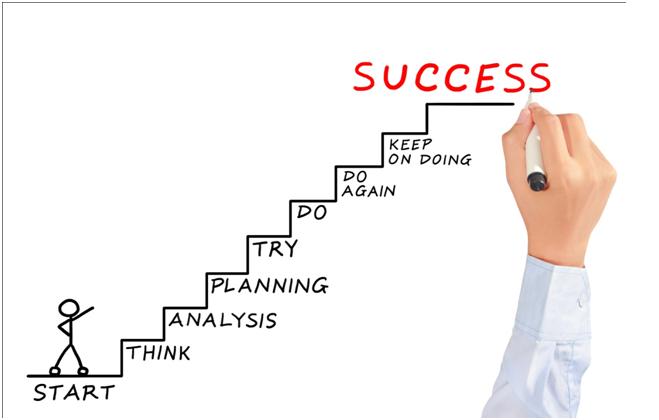
1. Start with a positive and fresh mind. Imagine becoming successful. Einstein said that “Imagination is more important than knowledge”. The more vividly and accurately you imagine your success, the easier it will be for the rest of yourself to follow through. The same way engineers first imagine a bridge and then build it, you can be the engineer of your success, too.
• Dedicate a few minutes every day to imagining your success. Imagine yourself in a movie in which you are successful. What are you doing in the movie? What is your success like? Savor the feeling of your success, and use it as motivation to stoke your fire.
• Cultivate a healthy motivation when imagining your success. Successful people all believe in themselves and their missions.
2. Find the purpose or goal of your life. Identify the things you love to do, the things that give you satisfaction. Once you identify what you love to do, use this information to find the purpose of your life or the objective of your life.
• Finding what you love to do will give you motivation along the way. Imagine the opportunity to participate in a chess tournament. It’s much, much easier to persistently chip away at your goal if your goal is something you enjoy doing
• How do you figure out a purpose or goal in life? It’s different for everyone, and for some it’s difficult, but there are several ways you can try to figure it out:
• Talk with a career coach or visit a good psychologist.
• Try out several different careers, remembering that even a less-than-fulfilling job can help you learn.
• Try making a career out of something you love. Whether it’s brewing beer or advising on art, you’re more likely to be successful doing something you know you love.
3. Define the meaning of success as you see it. You cannot have success if you do not know what it means for you. Everyone views success differently and using someone else standard for success is like eating another person’s lunch and expecting to love it. Set clear goals and be realistic.
• How will you know when you have achieved your goals? Your standards should be quantifiable, or else you could spend your entire life chasing after a vague goal.
• Create benchmarks: “My goal is to increase my productivity by 30% and only be late for work five times per year, at the most.” These are quantifiable goals that when achieved, give you a sense of satisfaction and completion, making you feel successful and confident.
4. Selectively lower your confidence. Lower your confidence. It’s a truism in business that you need to have high self-confidence to get things done. But some people think, and for good reason, that lower self-confidence makes people more successful, for these reasons:
• Lower self-confidence makes you pay attention to critical feedback and helps you be more self-critical. If you’re convinced you’re God’s gift to engineering, you probably won’t be receptive to feedback. Nor will you be able to criticize yourself effectively. Successful people do exactly that.
• Lower self-confidence makes you work harder and prepare more.
• Lower self-confidence makes you less narcissistic. Less narcissistic people are respected more by co-workers, and happy co-workers make a more successful team. It’s no secret that respect will make you successful.
5. Set a timeline for when you want to achieve your objective. If you don’t know when you will achieve your objective by, then it’s hard to know whether you have failed. Give yourself a timeline that is difficult but doable.







